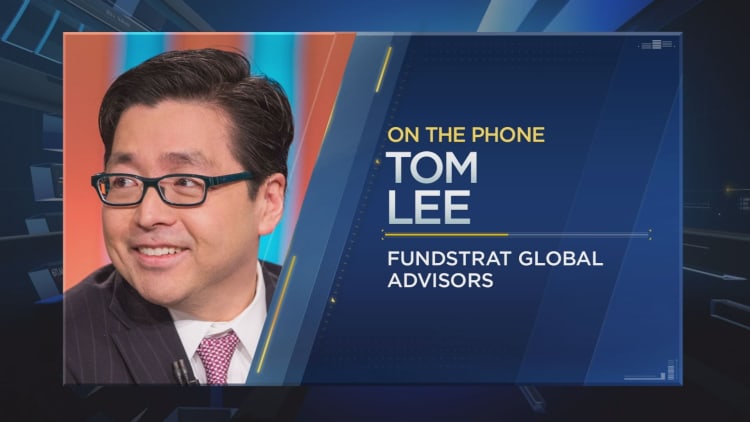
The third quarter could start with a whimper, coming on the Friday before a long summer holiday weekend.
But before traders head out early for the Fourth of July weekend, financial markets around the world will get a raft of manufacturing data from both emerging and developed economies, from China and India to Europe and the U.S.
Besides Markit PMI data, the U.S. data also includes the important 10 a.m. EDT release of ISM manufacturing for June, expected to rise slightly to 51.4 from 51.3 last month, according to Thomson Reuters. The U.S. also has construction spending at 10 a.m. and monthly vehicle sales, which are again expected to top 17 million on an annualized basis.
Stocks closed out the third quarter with a gain, thanks to this week's rally, which helped erase much of the losses from the two-day post-Brexit sell-off Friday and Monday. The was up 1.3 percent Thursday at 2,098, and it ended the quarter up 1.9 percent. The S&P is now 2.7 percent higher year to date.
The new quarter could draw in new money, but there may not be much of that action Friday.
"It's going to be a quiet day, but it is the first day of the quarter. …You're just not going to capture much of that on a Friday before a long weekend," said Art Hogan, chief market strategist at Wunderlich Securities.
Bob Sinche, chief global strategist at Amherst Pierpont, said the global PMI data could be important, and it may show a stabilizing in manufacturing. But it will also be looked at as less informative since it is old data and pre-Brexit, or from before the U.K. vote to split from the European Union last week.
Strategists have said any data that would have the potential to show the impact of Brexit will be more important, but that data will not be available until later in the summer. Economists expect Brexit to dampen growth in Europe and possibly send the U.K. into a recession. The U.S. is only supposed to see a slight paring of growth.
For now, however, the manufacturing data could help show whether the inventory correction in the first half of the year is ending, Sinche said.
"There are very tentative signs that manufacturing is beginning to pick up," he said. "What if every PMI we get from all across Asia, Europe, the U.K. shows everything is above 50, except Japan. That's not bad." PMI or ISM above 50 represents expansion, while below 50 suggests contraction.
Hogan said the markets have calmed down because Brexit is now understood not to be an urgent issue. "That's what the market is recalibrating toward. It's just dawning on us that it's a process that takes months, not days," said Hogan, adding it will become a hotter issue again once a new prime minister is named in September. At that point, the U.K. is expected to formally request separation from the EU, and Hogan said it's still not clear what the U.K. game plan will be.
Hogan said the stock market could also begin to focus on the U.S. election in the third quarter, as both parties hold conventions next month. "The markets are going to start reacting to the polls," he said, adding that the markets still favor a Hillary Clinton presidency over Donald Trump.
The third quarter also contains August and September, two weak months for stocks. "Equities tend to take the summer off, or at least that's the theory, and then fourth quarter is better," he said.
However, analytics firm Kensho shows that while the third quarter has been the worst-performing quarter in non-presidential election years since 1980, it was the best-performing in presidential election years. Kensho reports that the S&P 500 lost an average 0.6 percent in non-presidential election third quarters, but gained an average 1.8 percent in third quarters when the White House was up for grabs.
Besides Friday's economic data, there is also a speech by Cleveland Fed President Loretta Mester at 11a.m. EDT in London at the European Economics and Financial Centre. She speaks on the economic outlook and monetary policy and will take questions.


